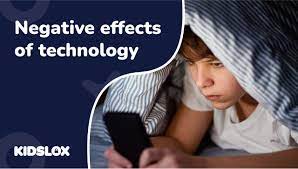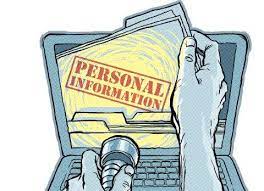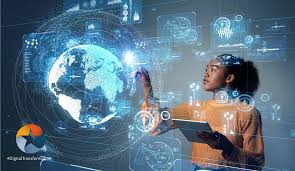Technology is all around us, it's become a part of us, so integrated into our daily lifestyle. Technology develops alongside our understanding of it, and has been "growing up" with Generation Z. Many are unsure of how to manage their technology usage or online awareness, and others sign up and scroll without a thought of concern. I have to say, I wish I had a more thorough understanding of technology when I was in middle school, right around the time I started posting embarrassing content of myself online. While nothing in my online presence tarnishes my reputation in any way, there are things I wish could be removed from the internet that simply cannot. I know other people who feel this way, wishing they'd understood what happens to their personal data once posted online, but then there are others who still haven't thought about this.
I think I have a somewhat unhealthy relationship with technology. I spend many hours a day on my phone. Sometimes I realize this, get up, and start a different activity, but other times I become aware of how long I've been on my phone and make no such changes. This isn't the case for most apps, just ones where I have a constantly updated, personalized feed, like TikTok or Instagram. These apps are two that concern me the most for myself and others my age, and around my age. TikTok is insanely addictive. There can't be an argument presented against that, as millions of youth around the country spend hours a day on the app, and often feel like it's impossible to pull themselves away like I stated. I do not know many people who casually use TikTok- they are either rarely on it or just use it to record videos, or they're on it many times a day and find themselves sucked into the endless feed of videos tailored specifically to them. This raises opportunity for an opposing opinion, as one could argue that these videos are serving as their media entertainment, rather than watching TV.
What makes the two activities differ is that TikTok is designed to hold your complete attention, and only show you videos that the app knows you'll enjoy, because of your data storage. TV cannot suck you in at the same level; no matter how much you like your favorite show, it is not designed to gain your specific attention like TikTok or Instagram reels. Instagram reels are pretty much the same thing as TikTok, with most of the videos being pulled from TikTok. Reels are a copycat of TikTok that emerged shortly following TikTok's success. Snapchat has also attempted to recreate TikTok's style of endless personalized videos. That's all evidence of how addicting TikTok truly is, with other mainstream giants attempting to gain the same usage for their app. I am focusing so heavily on TikTok and reels right now because I see it as one of the gravest wrong-doings in modern-day technological development. It has become apparent to me that these apps are in fact trying to create addictions to them, and since younger groups of the population are the most apt to these apps, it is they who are being targeted. Children, adolescents, and young adults like myself are the future of our society, and we must have a healthy relationship with technology to lead fulfilling lives and be equipped to appropriately utilize technology. The fact that I am able to digress so thoroughly yet am still aware of my unhealthy technology habits makes me worried for those who have yet to identify the problem, still off their radar.
I believe that technology does make me smarter but also stifles my opportunities for improving other areas of myself. In terms of concerns for misleading or unreliable information, I do not think technology is at fault for that. People in charge of operating certain aspects of technology such as those who create the morning news updates, press releases, or content creation are at fault for disseminating unreliable or misleading information. However, it is the viewers duty to ensure the information they digest to be reliable, truthful, and without bias though that may not be applicable in all situations. It is disappointing that we as the consumers must decipher what to trust, but it makes sense. Everybody in life is in the pursuit of their own happiness, and for some that pursuit involves deceiving others; technology does not operate for the greater good, and rather however the individuals utilizing technology want it to operate.
While I've clarified that I believe my relationship with technology to be unhealthy, I'd like to point out that I have many positive uses of technology, but I just don't think those outweigh the negative implications of my personal use. I think this differs for my family and friends though I'm not positive. My mom is on her phone often and uses Safari and iMessage the most. Those do not have any unhealthy consequences for her, but Instagram may. My mom is big on Instagram and has never been on Facebook at all. I find that odd, but I believe it to have something to do with the level of privacy your photos have on the two apps. I feel like she may at times spend too much time on Instagram, but know that it is for entertainment purposes, as she doesn't heavily watch TV because the content doesn't interest her. Overall I'm gonna say my mom has a positive relationship with technology. This is generally the same for all other adults in my life, I don't perceive them to have an unhealthy relationship with technology. It is with some of my peers and definitely younger family members I see more indication of unhealthy technology use like myself.
Technology must be taken with a grain of salt. The positive implications of different websites, platforms, entertainment services, etc may be obvious and endless, but the negative ones may not be so clear, and when they are can often be ignored. I think technology is a tool that can bring society to a higher level, but can also be responsible for our downfall if we don't start addressing the negative impacts it has.





















